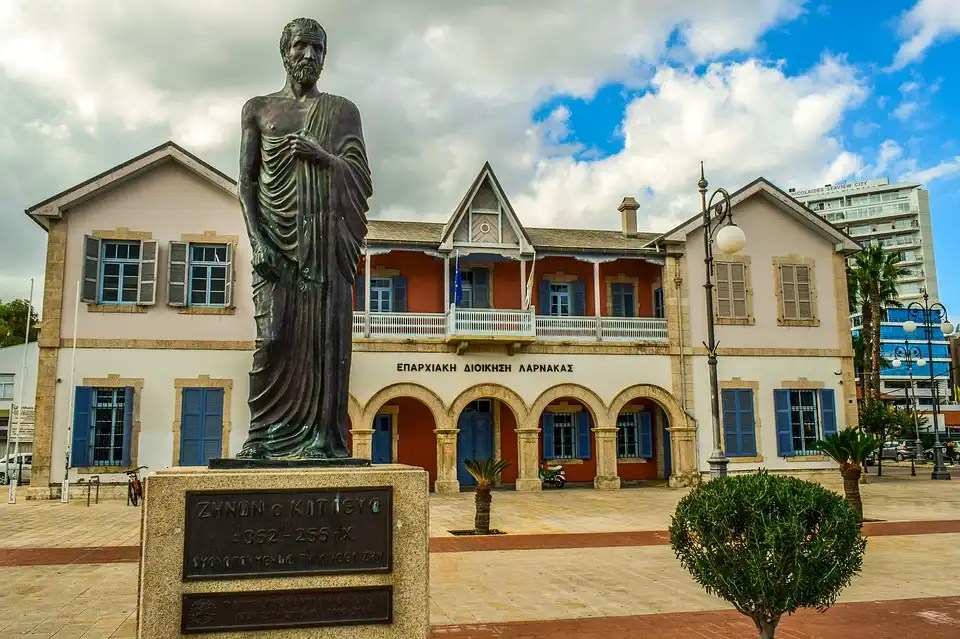
Definition: Colonialism is defined as an imposition of a more developed culture over a less developed one, backed up by expansionists and economic adventurism. European capitalists countries established political, economic, on cultural hegemony over other parts of the world which was initially at a lower level and therefore could not resist domination.
Originally, it was an idea for protecting the market for industry at home, to the idea of creating a new protected market for industry by seizing colonies abroad. This was so in the late 19th century. However in the early 19th century, ‘colonies’ had been cut off mainly as places like Canada, Australia, New Zealand etc. Where Europeans could easily go and settle. Later, the meaning of the word ‘colony’ assumed another dimension. Some writers now it is ‘colonies of exploitation’ where Europeans would not settle but where European money could be used to increase production and create new markets and sources of raw materials. As enthusiasm for South colonies grew, people began to press government to establish them and create new market for national industry which the expected would be protected from the competition of goods produced in other countries by high tariffs.

Historical Background of Colonial Administration in Nigeria
In the 1880s, before the colonial administration in Nigeria, Europe had gone ahead of the rest of the world in science and technology. So Europe of 19th century became the workshop of the world between desires for raw materials for the industries. Britain, Belgium, France, Germany and Italy was involved in this race.
So the competitive search for markets and sources of raw materials that was drawn in Europe only affected European attitudes to Africa.
By the late 19th century, the concern about sourcing raw materials on market had become a serious issue in most European countries. The scramble for Africa by the European countries led to the partition of Africa after the Berlin conference of 1884 to 1885. Britain colonized Nigeria Ghana the Gambia Sierra-Leone in West Africa.
In 1898, the British government sought to establish and maintain economic state in Nigeria. To achieve this a number of measures to be taken, for example, removal of all visible opposition to the imposition of colonial rule, expansion and consolidation of British authority over the territory letter known as Nigeria, similarly to gradually amalgamate the three different administrative units:
- The Lagos colony
- The Southern Protectorate
- The Northern Protectorate
In May 1906, the Lagos colony and southern protectorate were joined together and had a different name, the colony and protectorate of southern Nigeria. Lord Frederick Lugard in 1914 amalgamated Lagos colony and the southern protectorate with northern protectorate to form a single colony called protectorate of Nigeria. Britain therefore governed Nigeria by means of a system popularly referred to as ‘Indirect Rule’. Britain claimed that the system involved not governing the people directly but through their local traditional rulers and chiefs.
In 1900, use of traditional chiefs in the administration was already on in British West Africa. That same year sir Frederick Lord Lugard became the high commissioner of northern Nigeria where he first introduced to the indirect rule system. He left northern Nigeria in 1906, and after the amalgamation of the two protectorates in 1914, Lord Lugard equally introduced the system in the southern part of the country.
It was alleged that the wife of Lord Lugard found the name Nigeria after the amalgamation. Lord Lugard later became the first governor general of Nigeria. Today he is referred to as the father of indirect rule system whenever the colonial system of administration in Nigeria is being discussed.
Colonial System of Administration in Nigeria: Positive and Negative Impacts
We shall treat the negative impacts of being colonized by the British and give brief explanations after which we shall discuss the positive impacts on Nigeria as a Nation today.
NEGATIVE IMPACTS OF BRITISH COLONIZATION IN NIGERIA
Means of Communication; The means of communication will not constructed for the benefit of Nigerians as they were not laid down to facilitate internal trade within Nigeria African communities. All roads and railways lead to the sea in a bid to extract cottons, gold, palm produce, groundnut and cocoa.
Exploitation of Human and Raw Materials: Africa as a whole dustbin exploited by capital produced by African labor. In 1929, lever Brothers took over the Niger Company, they became heir to one of the most notorious exploiters of the 19th century in Africa.
At that time, the industry’s using African raw materials are located in Europe, thus there could be no beneficial backward and forward linkages inside Africa. For example, after the Second World War, Guinea began to exploit bauxite. in the hands of the French and American capitalists, the bauxite became aluminum and it went into the making of electrical conductors, kitchen utensils, glasses and so on. Wine in Guinea the colonial bauxite mining activities left holes in the ground which lead to erosion.
Negation of Freedom: Colonialism was a negation of freedom. it could not possibly bring more than political liberation to Africa.
Relinquishing of Power: Power is the ultimate determinant in human society being basic to the relations within any group and between groups. Roman society finds itself forced to relinquish power and turn into another society that in itself, is a form of underdevelopment.
Used As Puppets: Most States lost their power and independence irrespective of whether they were big empires of small polities. Certain traditional rulers were kept in offices the formal structure of some kingdoms empires were partially retained but politically power had passed into the hands of foreign overlords. African rulers were chosen to serve as agents of foreign colonial rulers and they were obviously nothing but puppets.
Education: The purpose of colonial education was to train Africans to help man the local administration at the lowest rank and to staff the private capitalist firm owned by Europeans.
Subdue of The African Tradition and Culture: Before the British colonized Nigeria, English language was not our first means of communication. They forced their colonies to speak and adopt their language and other cultures thereby making the original language of Nigeria secondary. Examples abound in present-day Africa of the insulting and dehumanizing treatment of aspect of African culture in the colonial era, based on cultural imperialism and racism. For example, France did not respect Afghan culture, instead it imposed its own on the people of the colonies.
Neglect of Food Crops Farming: Since the British were more concerned about economic gains they concentrated their efforts in the area of producing cash crops e.g. Cocoa, Cotton, palm oil produce and groundnuts 4 industries in Europe without a fault made to encourage the people to go into the production of food crops for domestic consumption.
POSITIVE IMPACTS OF BRITISH COLONIZATION IN NIGERIA
Military and Technical Aids: Some former colonial territories especially the French territories received military and technical aid from the former colonial Masters. For example Nigeria is at an advantage point when seeking military or technical aids from Britain because of the relationship built during the colonial era between both countries.
Trade Relations: This was established with Britain and Nigeria during the colonial era. This has fostered trade relations between both countries. This existing relationship was made possible because of the colonial era.
Common Language: English language is one of the most spoken languages in the world. And because the British colonial Masters imposed their language on their colonies, it has greatly assisted in communication between Nigeria and other British colonies both politically and diplomatically.
The Commonwealth of Nations: This organization was formed to bring about together or former colonies under Britain and Britain itself. They cooperate among themselves in different areas of human endeavors example is in the area if sports, scholarship programs, and military assistance.
Emergence of Press Freedom: impact of colonialism was the emergence of press especially the print Media (newspaper). Decrease the volume and became the mouthpiece of the people in the struggle for political independence.
Indirect Rule System of Government
Colonial system of government cannot be complete without talking about the very popular Indirect Rule System of government adopted by Britain. Mind you, during the pre-colonial era there was nothing like indirect rule system of government until the colonization of Nigeria by the British.
As discussed earlier, the indirect rule system of government is one in which the British colonial government adopt a colonial policy in dealing with the people by using traditional rulers the traditional political institutions, administrative, cultural and religious structures as intermediaries while the British officials mainly advice, and where necessary, enforce colonial regulations.
Features of Indirect Rule System
When asked what the features of indirect rule system of government is about, the listed features below would do just to that.
1) Traditional Rulers: The colonialists rule indirectly by engaging the traditional rulers and chiefs to govern the people.
2) The Traditional System of Government: the traditional political system of government in place was utilized.
3) Customs and Traditions: the customs and traditions of the people played a significant role in the administration.
4) Respect for the Culture: The cultural values of the people who respected by the British officials.
5) British Officials: They were to guide and where need be, enforce Colonial regulations. For instance, resident and district officers.
6) Respect for Traditional Rulers: They were respected and given exalted position in the administration which made it easy for the colonialist to operate and rule.
7) Cost of Administration: The cost of administration was not her because those involved were paid peanuts by the British colonialist.
8) Collection of Taxes: the words made the use of Nigeria agricultural produce in form of taxes.
9) Native Court: Native culture used for administration of justice. This was applicable to the locals only.
10) The Police and Prisons: Native police and prisons were the last in the system for erring locals or oppositions.
13 Reasons The British Adopted The Indirect Rule System In Nigeria
There were a number of reasons the British colonialists adopted the indirect rule system of government. Don’t forget they were already advanced in technology, economically and politically.
Now we shall be listing the 13 major reasons the whites adopted the indirect rule system of government as the best form colonial administration in Nigeria at that time.
1) Lack of British Personnel: Obviously Nigeria was not the only West African country colonized by the British, other countries like Ghana, Sierra-Leone and The Gambia were part of the British colonies. This was a case of plenty harvest but few hands to cultivate. The system had few Europeans to control effectively areas under air control hence indirect rule system was birthed since it only required few men at the helms of affairs while the traditional rulers did the dirty jobs.
2) Lack of Funds: There was not sufficient funds from a British government to engage British officials for direct administration so an alternative means of cost effective means of administration emerged.
3) Poor Climates: Poor climatic conditions also aggravated the situation. During that era, many British citizens refused coming down to be involved in the administration of Nigeria due to the poor climatic conditions and the presence of mosquitoes. This led to Africa being nicknamed the ‘White man’s grave’ as a result of these factors.
4) Economic Requirements: At the beginning of this post we defined the meaning of Colonialism, which simply is the imposition of a more developed culture over a less developed one backed up by expansionists and economic adventurism. The economic demands for raw materials is one of the reasons for the colonization of Nigeria which brought about the adoption of Indirect Rule system of governance.
The colonialists wanted to create market for their goods and to encourage West Africans to produce those raw materials. So their economic needs were part of the reasons for adopting the indirect rule system of government in Nigeria.
5) The Roles and Positions of Traditional Rulers: Britain saw our uniqueness the role and positions occupied in the administration before the introduction of indirect rule, the British realized that these people saw their rulers as divine that should be respected. They took advantage of this and the indirect rule system worked perfectly for them. For example the Emirs, the British realized that the people took their Emirs as demigods therefore, not making use of the traditional rulers could spell chaos and instability in the system.
6) Success of Indirect Rule System In Other British Colonies: Lord Lugard felt that the success of this policy in India, Uganda and order British colonies was enough proof that the system could equally succeed in Nigeria, hence the adoption of Indirect Rule system.
7) Large Expanse of Land: Areas administered by Britain are so large that indirect administration was a better option. A perfect example is the Northern Nigeria. The Northern Nigeria most especially is so large that is required a lot of people to effectively administer but since this was not possible owing the the few whites available, an indirect rule system of government in Nigeria was adopted.
8) Language Barrier: Communication is the most important aspect of human existence hence must be taken into cognizance for governance to be effectively administered. indirect rule succeeded in removing the language barrier that would have posed a major problem to the British Colonial administration if ‘Direct Rule’ was adopted. English language was used bye the British and this was quite different from languages of most of her colonies and one of which is Nigeria.
9) Stable Political System: There is a general saying ‘Why Fix It When It Isn’t Broken’. The British met a very unique and stable form of political system and since obedience to a constituted authority is a must for a stable political system and the subjects in the Northern Nigeria were so obedient to their rulers and the institutions using a direct rule system would have distorted the political administration and incurred the wrath of the people, hence the indirect rule system was adopted as the best form of colonial administration in Nigeria.
10) Local Maps: They were new to the land, they lacked proper knowledge about the terrain of their colony so making use of the locals made it quite easy for getting from one end to another.
11) Cheap Cost of Administration: The cost of administration was very cheap and this was because peanuts were paid to traditional rulers used for the system. Traditional rulers were naïve and ignorant so they were easily deceived and cajoled into dancing to the tunes of the British and given peanuts which the traditional rulers appreciated and valued in high esteem.
12) Poor Communication System: A system of transportation and communication was quite poor. Donkeys and camels were the major means of communication aside trekking. The whites were not used to such and this necessitated the adoption of indirect rule system.
The above were the major reasons popular indirect rule system of government was adopted and it thrived. However, it had some demerits which we are going to be discussing. We could have used the reason for the adoption of this type of colonial system of administration in Nigeria as the merits. However, there are some points not cited in the reasons for the establishment of indirect rule system that are in the merits or advantages of adopting this system of governance by the colonial Masters.
We will be talking about the merits before citing the demerits of this colonial system of administration in Nigeria by the British.
Merits of Indirect Rule During The Colonial System of Administration In Nigeria
Respect for the peoples tradition and culture: This was achieved mostly in the northern part of Nigeria.
Cost Effectiveness: The use of traditional rulers in the administration made it less costly simply because to be paid peanuts in terms of salary.
Fertile Ground for Training: Indirect rule administration was a fertile ground for the training of traditional rulers and chips especially in the area of local administration.
Flexibility of Indirect Rule System: Indirect rule system was not much more accommodating that the French Direct administration in western Africa. Why the former allowed formation of political parties the latter did not.
Eradication of Crimes: This system helps to put a stop to some evil practices in some part of the country for example in Eastern Nigeria where giving birth to twins was perceived as an abomination, the intervention of the colonial Masters stopped the barbaric act, as well as using human beings for sacrifices.
Development of traditional institutions: Traditional institutions native courts and so on but developed making it more effective and efficient in carrying out their functions.
Revenue Collection: Indirect rule system of government helped introducing new methods of revenue collection. An example is taxation, whereby locals read taxed the British colonial Masters.
Disadvantages of Indirect Rule System of Colonial System of Administration in Nigeria
1) Evil practices thrived because most traditional rulers were involved in evil practices and the system could not prosecute them for necessary punishment.
2) It excluded educated Nigerians. That is, educated Nigerians work today from taking part in the colonial administration instead they made use of illiterates who were mostly saturated in the northern Nigeria.
Indirect rule system of government retarded development.
The system was an instrument of maintaining status quo rather than development. Progress and development were relatively very slow especially in the northern part of the country because of the exploitation of the northerners due to their high level of illiteracy.
3) The traditional institutions of the people were neglected and the colonial authorities appointed warrant chiefs that merely represented the interests of those that appointed them. The appointments of traditional rulers were illegitimate because it did not get the support of the people.
4) One of the backwardness of the indirect rule system was the high-handedness of the warrant chiefs. Their functions were not clearly defined on the took advantage therefore abusing their positions on this lead to chaos and uncertainty in the system. A perfect example is the ‘ABA women riot of 1929’ and the ‘Warri provincial tax riot of 1927’.
5) The indirect rule system was imposed on the people, it was not chosen by the people or in any way responsible to the people. This simply meant it was forcefully imposed on the people.
6) The democratic rights of the people were abused. People were denied of their rights for example the right to question laws that were obnoxious and other activities that undermine their rights.
7) Another disadvantage of this system of governance was that the colonial authority monopolized the right to appoint and deposed traditional rulers and chiefs without the people’s consents.



